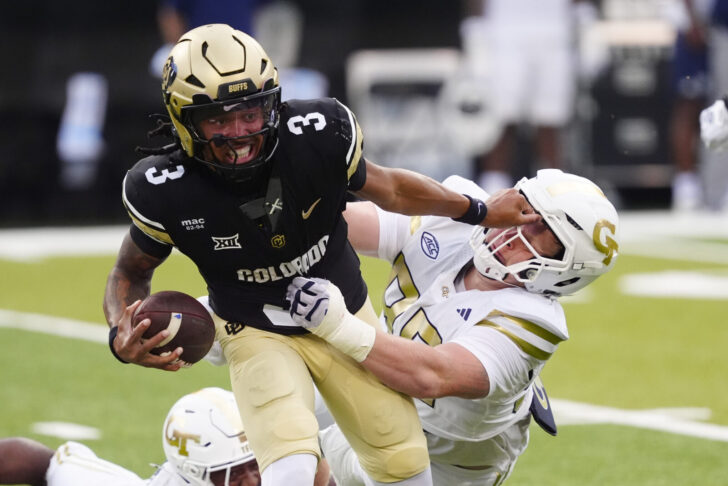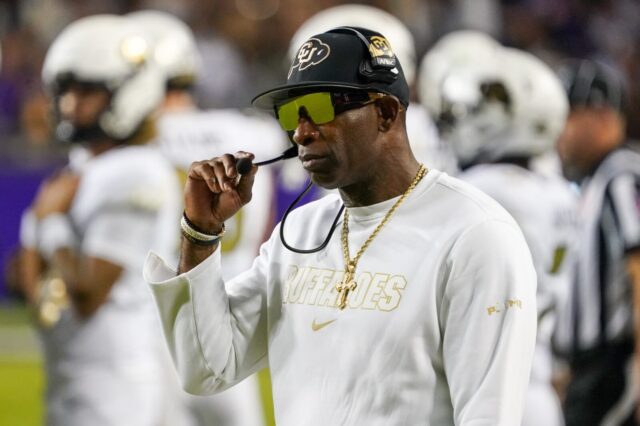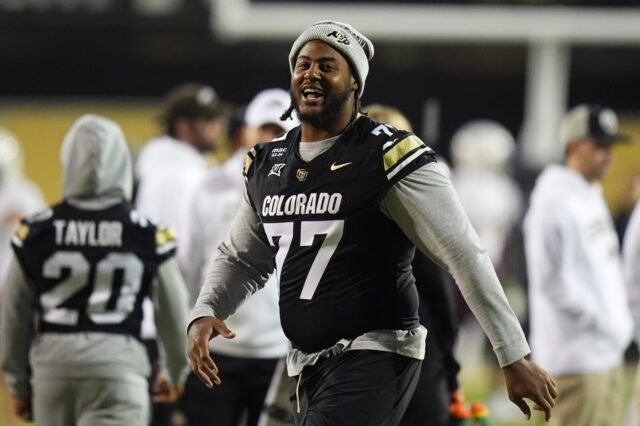Strike 2: It was almost perfect. A five-day college football extravaganza.
The weather was pretty much great everywhere (except Florida.) Stadiums on and off campus were packed. The pageantry was epic, there were multiple Top 10 and Top 25 matchups – like Texas at Ohio State, LSU at Clemson and Notre Dame at Miami. Fans got thrilling finishes that included decisive final plays, some blowouts and one really big upset. And there was Lee Corso’s ESPN swan song and Bill Belichick’s first foray into college coaching as well. We couldn’t have asked for much more.
Except…
The on-field play could have been, well, better. Just ask Arch Manning.
If you watched Georgia Tech fumble and bumble through their first three offensive series against CU before finding some footing, then you understand. The Yellow Jackets were far from the only good team to look like they could have used a tune up game – NFL style – before kicking it off for real against a comparable foe. The Buffs were among several more squads that could have used one too.
Of course a lot of teams didn’t do what Tech and Colorado did, scheduling another Power Four conference opponent for their opener. A lot of teams opted for a lower weight class on opening weekend. There were games like Penn State vs. Nevada, Indiana vs. Old Dominion, Oklahoma vs. Illinois State and Florida vs. Long Island. These teams opted, with good reason actually, to have their desert before their meal, so to speak.
However, since TV calls the scheduling shots now, a lot of teams weren’t allowed to have cupcakes on their opening week menu.
Scheduling discrepancies like this happen in large part because the college game doesn’t have any preseason games.
But should they?
Crisper play from better prepared players is why the NFL has a preseason. College football would benefit from something similar as well.
Even without adding more real games to an already lengthy slate for the most successful teams, there’s still a way. What if college football programs were allowed to do what college basketball teams do and have a “closed door scrimmage” of sorts against dudes in different colored jerseys before the regular season starts?
Or – even better – what if the Buffs and say, Delaware, could get together sometime around the 20th of August and practice against each other for a couple of days, and then play a practice game that didn’t count, just to work out the kinks? They could charge admission and give the visitors their big payday (just like the Blue Hens will be getting this week when they visit Folsom Field) without the game counting as a regular season contest. Colorado State and Northern Colorado could do the same – meet in mid-August and scrimmage early, instead of playing one that counts this Saturday.
A set up like this would have benefited both the Buffs and the Rams before they opened their seasons with losses. And you know what? If this scenario were real, it would’ve created a schedule opening for both teams on Week 2 – meaning a chance for another Rocky Mountain Showdown tilt.
Take it a step further. The NFL is now expanding the “joint practices” concept – which is pretty much what CU coach Deion Sanders was campaigning for at the college level last winter. He wanted to bring in another team to be the opponent for the annual intersquad spring game. If that plan was shifted to August, teams could cap off a couple days of combined practice sessions with a controlled scrimmage, where the starters play a series or two before the backups take over. Get everyone tuned up and ready for their season openers.
If we did this, then maybe we’d see a few more Ohio State vs. Texas and Miami vs. Notre Dame openers and fewer Iowa vs. Albany “contests” on opening weekend.
Instead of expanding the playoff at the end of the season, add in a preseason game instead. Then everyone could have their desert first and fans would get more of the main course.





